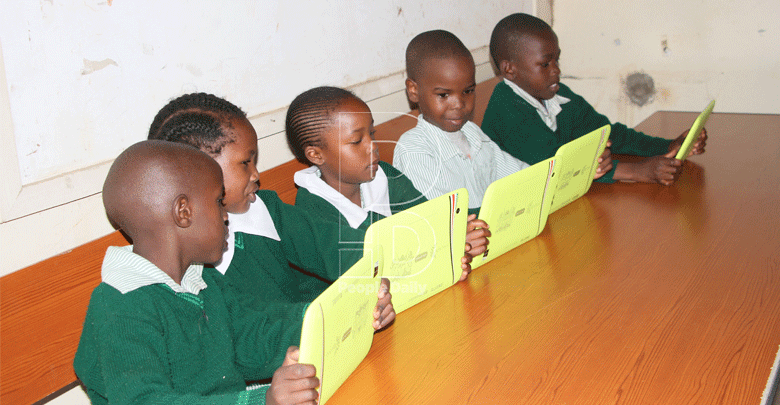Only one per cent of learners had access to computers during break – survey
By Irene Githinji, July 12, 2021Irene Githinji @gitshee
The education system was unprepared for the massive changes in learning modes during the Covid-19 pandemic, a new report has shown.
It states that only one per cent of respondents had access to computers during the pandemic, highlighting the significant digital divide in education in the country.
It also states that even for adolescents who could access mobile phones, limited access to internet connectivity was a significant barrier.
The Impact of Covid-19 on Adolescents in Kenya’ report to be released today, however, indicates that relevant stakeholders adapted and used remote and online learning options to reach learners.
According to the report, when the pandemic broke out, there were a wide variety of remote learning programmes implemented by the Ministry, supplemented by individual schools’ initiatives.
These remote learning programmes were delivered through the internet, television, radio, and physical materials.
“Despite remote learning being embraced as a continuation of classroom learning, respondents noted that it fell short of the classroom experience due to inaccessibility of teachers, materials, and time,” the report states.
During closure of schools, some teachers relied on mobile phones for remote learning where they would send assignments to students and receive answers as text.
However, the medium was very limited, with less than a third of students being able to use mobile phones for learning.
In other cases, parents limited adolescents from accessing mobile phones since they were concerned the phones would be misused.
“We were supposed to study through the radio but we do not have one,” a 17-year old boy in Makueni said.
“Sometimes I borrow a phone from someone and study through the internet. The Internet has helped me to learn new things,” a 14-year-old girl in Nairobi said.
“My teacher used to send homework for us to do over the phone. Then he would mark and send us our grades,” another 19-year-old adolescent boy in Kisumu said.
Some 40 per cent of respondents stated that lack of data bundles hindered them from accessing lessons through smartphones and other devices.
Remote learning
The problem was identified to be higher for girls at 41 per cent compared to boys at 36 per cent.
In Wajir county, the challenge was even greater, affecting 47 per cent of the few adolescents who attempted remote learning, with no observable differences between girls and boys.
“Lower income households were more affected since they rely more on accessing internet through the more expensive data bundles, while higher income households use WI-FI services which are cheaper than mobile data bundles,” the report says.
In addition to limited access and connectivity, the report says that remote learning through mobile phones and other electronic devices was hindered by lack of and unreliable electricity.
The lack of electricity prevented learning for 53 percent of adolescents, reported by more girls (89 per cent) than boys (77 per cent).
Among those who attempted remote learning in Wajir, 84 per cent, had no access to electricity.
“Students that opted for remote learning through broadcasting media also faced challenges, while others completely ran out of digital options.
Other students attempted to access lessons through radio and television with challenges including limited access to devices and electricity,” states the report.
Across all research areas, the report said that adolescents, especially girls, reported concentration issues while attempting to learn at home.
Some 66 per cent of adolescents reported that it was hard to concentrate at home, with girls (76 per cent) aged 15–19 years more likely to report this challenge across all sites.
“There are those that make too much noise until you cannot read in peace. Learning at home is difficult,” said a 11-year girl.
In Wajir, up to 66 per cent of girls reported this difficulty.
While some respondents indicated that remote learning afforded them more time to read and understand their notes, others highlighted that reading alone presented a challenge especially when there was no teacher to explain difficult concepts.
